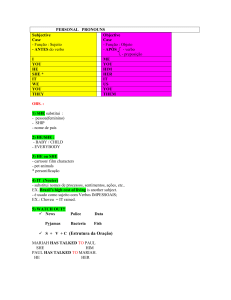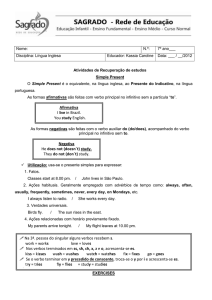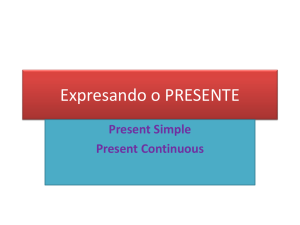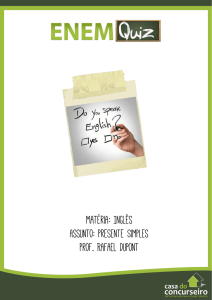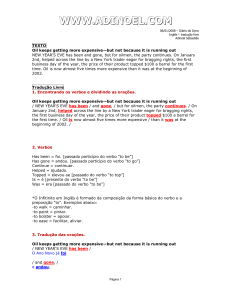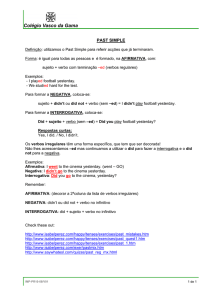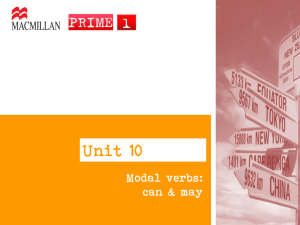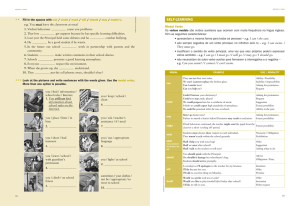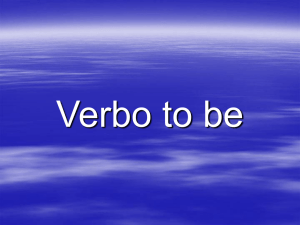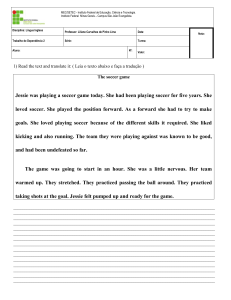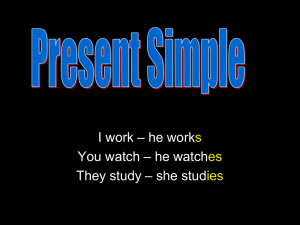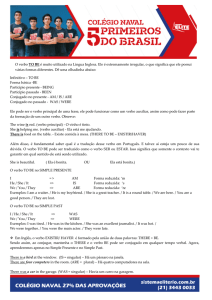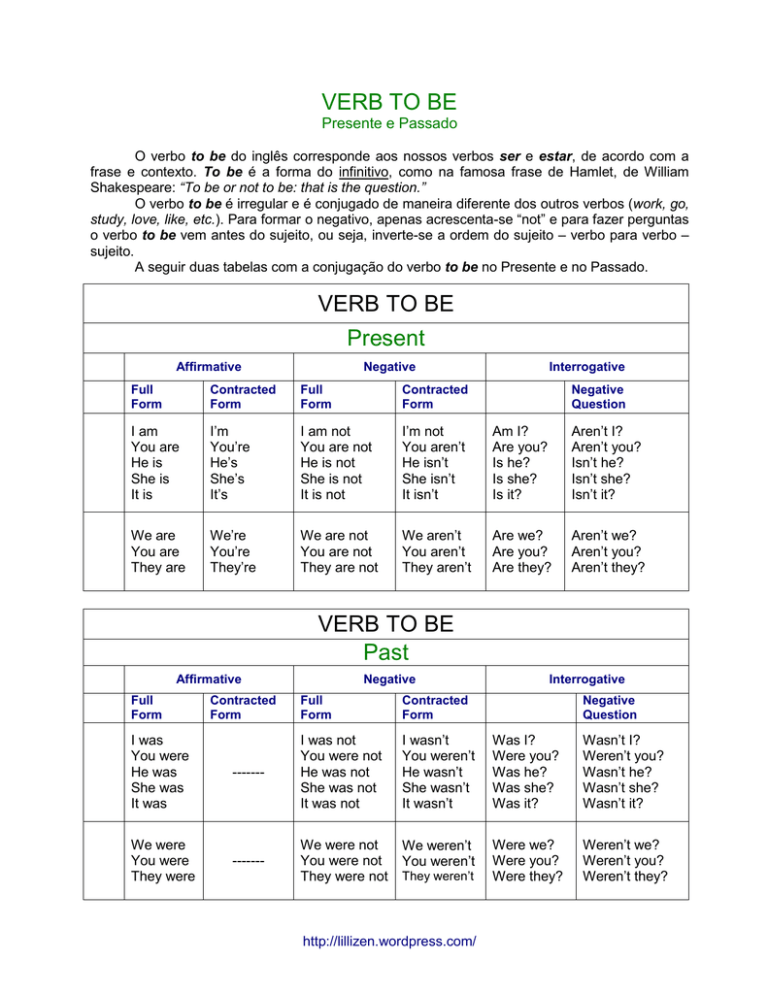
VERB TO BE
Presente e Passado
O verbo to be do inglês corresponde aos nossos verbos ser e estar, de acordo com a
frase e contexto. To be é a forma do infinitivo, como na famosa frase de Hamlet, de William
Shakespeare: “To be or not to be: that is the question.”
O verbo to be é irregular e é conjugado de maneira diferente dos outros verbos (work, go,
study, love, like, etc.). Para formar o negativo, apenas acrescenta-se “not” e para fazer perguntas
o verbo to be vem antes do sujeito, ou seja, inverte-se a ordem do sujeito – verbo para verbo –
sujeito.
A seguir duas tabelas com a conjugação do verbo to be no Presente e no Passado.
VERB TO BE
Present
Affirmative
Negative
Interrogative
Full
Form
Contracted
Form
Full
Form
Contracted
Form
Negative
Question
I am
You are
He is
She is
It is
I’m
You’re
He’s
She’s
It’s
I am not
You are not
He is not
She is not
It is not
I’m not
You aren’t
He isn’t
She isn’t
It isn’t
Am I?
Are you?
Is he?
Is she?
Is it?
Aren’t I?
Aren’t you?
Isn’t he?
Isn’t she?
Isn’t it?
We are
You are
They are
We’re
You’re
They’re
We are not
You are not
They are not
We aren’t
You aren’t
They aren’t
Are we?
Are you?
Are they?
Aren’t we?
Aren’t you?
Aren’t they?
VERB TO BE
Past
Affirmative
Full
Form
Contracted
Form
Negative
Interrogative
Full
Form
Contracted
Form
I wasn’t
You weren’t
He wasn’t
She wasn’t
It wasn’t
Was I?
Were you?
Was he?
Was she?
Was it?
Wasn’t I?
Weren’t you?
Wasn’t he?
Wasn’t she?
Wasn’t it?
We weren’t
You weren’t
Were we?
Were you?
Were they?
Weren’t we?
Weren’t you?
Weren’t they?
I was
You were
He was
She was
It was
-------
I was not
You were not
He was not
She was not
It was not
We were
You were
They were
-------
We were not
You were not
They were not
They weren’t
http://lillizen.wordpress.com/
Negative
Question

